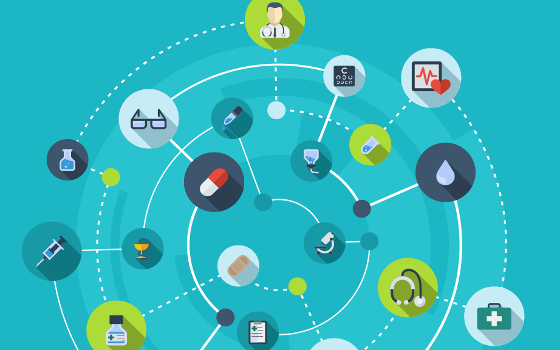The 10th year of the Annual European Medical Information and Communications Conference is a unique meeting organised by medical information professionals for medical information professionals. Each year, speakers share hands-on experience dealing with current challenges as well as successes in medical information departments. Participants are encouraged to take part in the interactive workshop sessions and discussions happening throughout the conference. This conference is the one and only European forum dedicated to medical information and communications, making it the premier opportunity to network, exchange learnings, and share best practices.
Key Topics
- Moving from traditional phone- and email-based channels to innovative digital channels to disseminate medical information
- Examples of successes in digital presented by the most advanced players
- Comparison between pharmaceuticals and medical devices - can the same strategies be used, or is a different approach needed?
- Regulatory and legal issues: developments since the rejection of Safe Harbor - what's the impact of the new data privacy rules in Europe (Data privacy shield)
- How to optimise collaboration between MSL and MedInfo roles
- Effects of globalisation on different roles? How much localisation and how much globalisation is suitable?
Join the Annual European Medical Information and Communications Conference and find answers to issues of daily importance:
- Are you clear on how to handle questions about off-label use?
- Do you understand the latest changes in data privacy regulations?
- Do you know the pros and cons of outsourcing medical information services?
- How do you ensure high quality when you outsource customer service? Are you not happy with the quality of your outsourced customer services?
- Is quality an issue in your outsourced medical information function?
- Is your medical information website getting high enough usage? Learn how to improve hits and increase the number of users.
- You have develop a website for customer service - now how do you get people to use your site? Is all your effort of building the site going to waste because nobody uses it?
- How can you be successful in globalising medical information? From a local perspective, how can you best adapt and implement global guidelines?
Call for Poster Abstracts
Become an active part of the conference you attend by presenting a poster. Submit an abstract and take this opportunity to present your research and work to your peers at the conference. It's the perfect place for you to put your research into the limelight, to create discussions around your results with other professionals or to generate interest around a subject you feel needs more attention.
The European Medical Information and Communication Conference stretches across a variety of topics that you have encountered during your work. Contribute to the discussions at the conference by sharing your own experience. Please only submit abstracts matching the following topics:
- From Safe Harbor to The EU/US Privacy Shield - What do you Need to Know in Medical Information?
- The Future of Medical Information - Changing Modes of Communication
- Globalization/Regionalization - Is it Possible to Have one Framework?
- Medical Information and Medical Scientific Liaisons (MSLs) Partnerships
- Providing Medical Information for Medical Devices
- When Medical Information Goes On-line - Optimising the Sharing Experience
- Considerations, User-Interface and Other Considerations
- Supporting Established Products in Medical Information
- Outsourcing and Insourcing Medical Information
- Medical Information for Challenging Geographies
Deadline: Submit Poster Abstracts by Monday, 26 September 2016.
For further information, please visit:
http://www.diaglobal.org/en/conference-listing/meetings/2016/11/10th-annual-european-medical-information-and-communications-conference-and-exhibition
About DIA
For over 50 years, DIA has served as a global platform for more than 30,000 health care product development professionals, researchers, regulators, clinicians, academics and patient advocates to collaborate to improve health globally through the advancement of lifesaving medicines and technologies. As the premier professional community for the health care product development ecosystem, DIA (the Drug Information Association) provides global players a neutral and transparent forum for the exchange of ideas and collaboration. By offering access to tools, resources, and networking opportunities, DIA provides its members and international participants objective opportunities for extending debate and discussion to advance scientific and medical innovation.
DIA is an independent, global nonprofit organization based in Washington, DC, USA, with regional offices representing the Americas (Horsham, PA, USA); Europe, the Middle East, and Africa (Basel, Switzerland); and Asia (Beijing, China; Mumbai, India; and, Tokyo, Japan).
